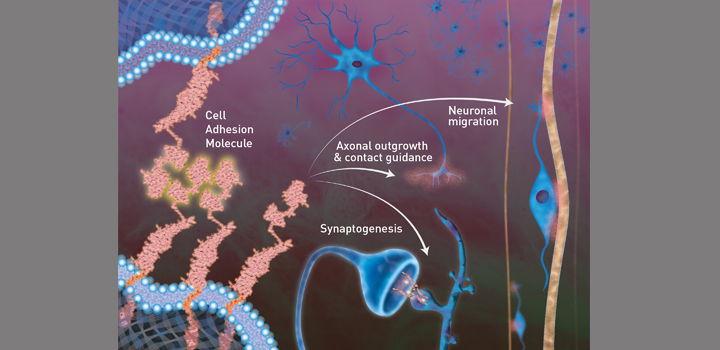Sosa LJ et al, J Neurochem., 2017
The amyloid precursor protein (APP) is a type I transmembrane glycoprotein better known for its participation in the physiopathology of Alzheimer disease as the source of the beta amyloid fragment. However, the physiological functions of the full-length protein and its proteolytic fragments have remained elusive. APP was first described as a cell-surface receptor; nevertheless, increasing evidence highlighted APP as a cell adhesion molecule (CAM). In this review, we will focus on the current knowledge of the physiological role of APP as a CAM and its involvement in key events of neuronal development, such as migration, neurite outgrowth, growth cone pathfinding and synaptogenesis. Finally, since APP is overexpressed in Down syndrome individuals due to the extra copy of chromosome 21, in the last section of the review we discuss the potential contribution of APP to the neuronal and synaptic defects described in this genetic condition.
Authors: Sosa LJ, Caceres,Dupraz S, Oksdath M, Quiroga S, Lorenzo A.
Article: Sosa et al. J Neurochem. 2017 Jul 5. doi: 10.1111/Jtrchkl4l22



